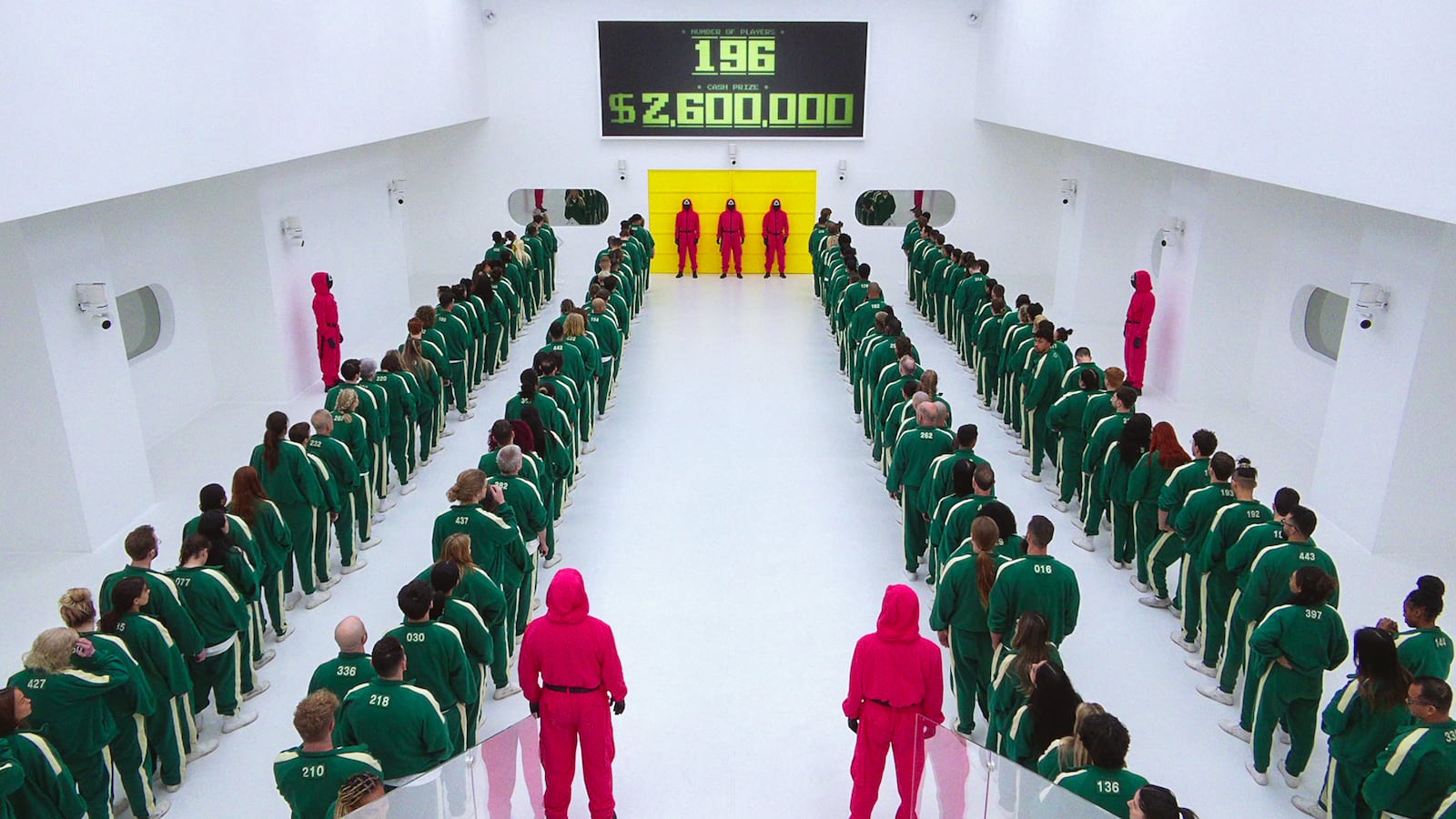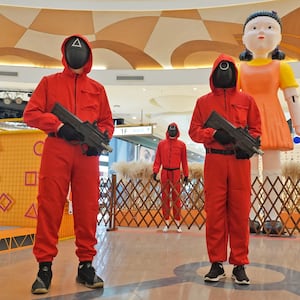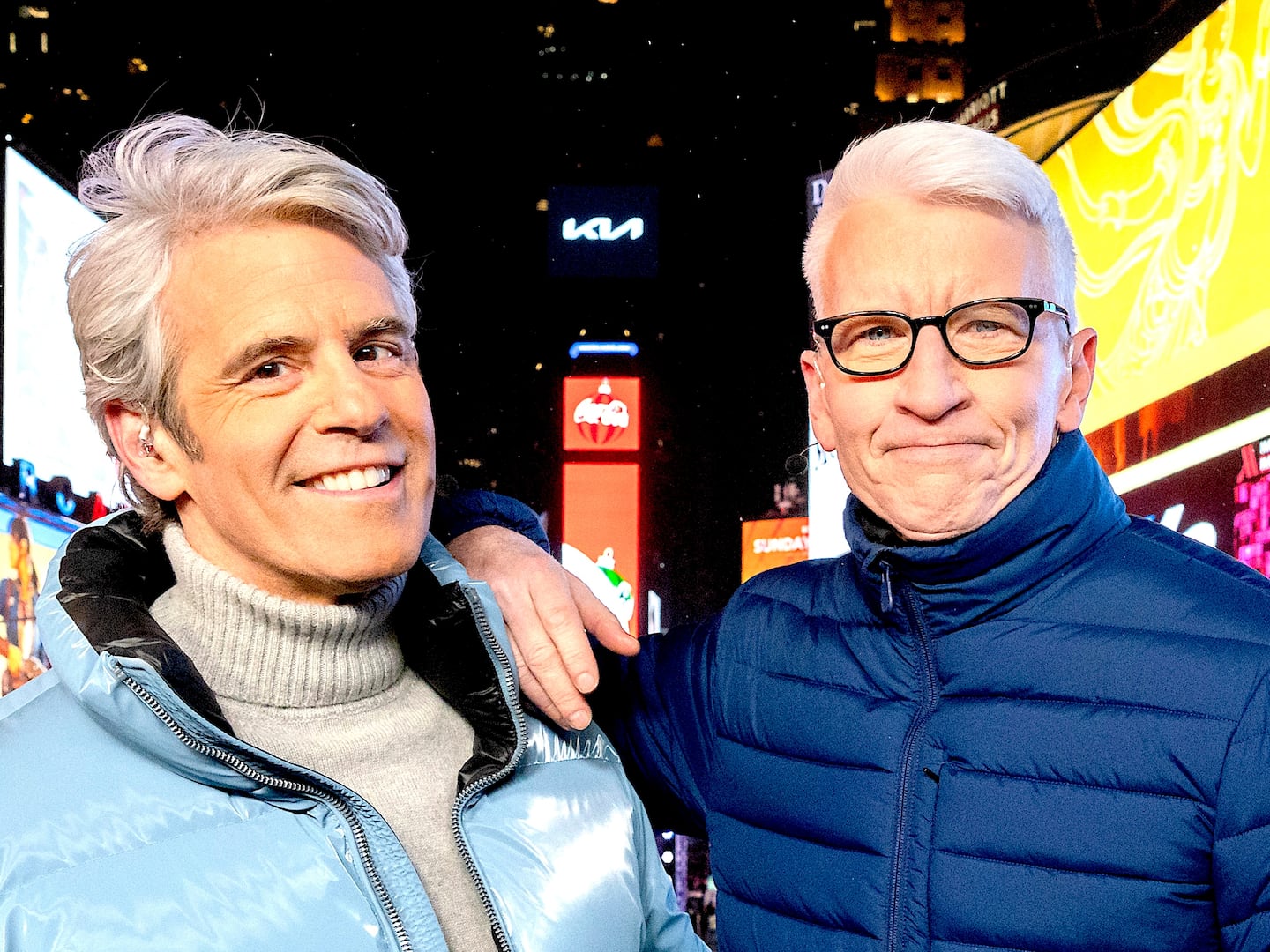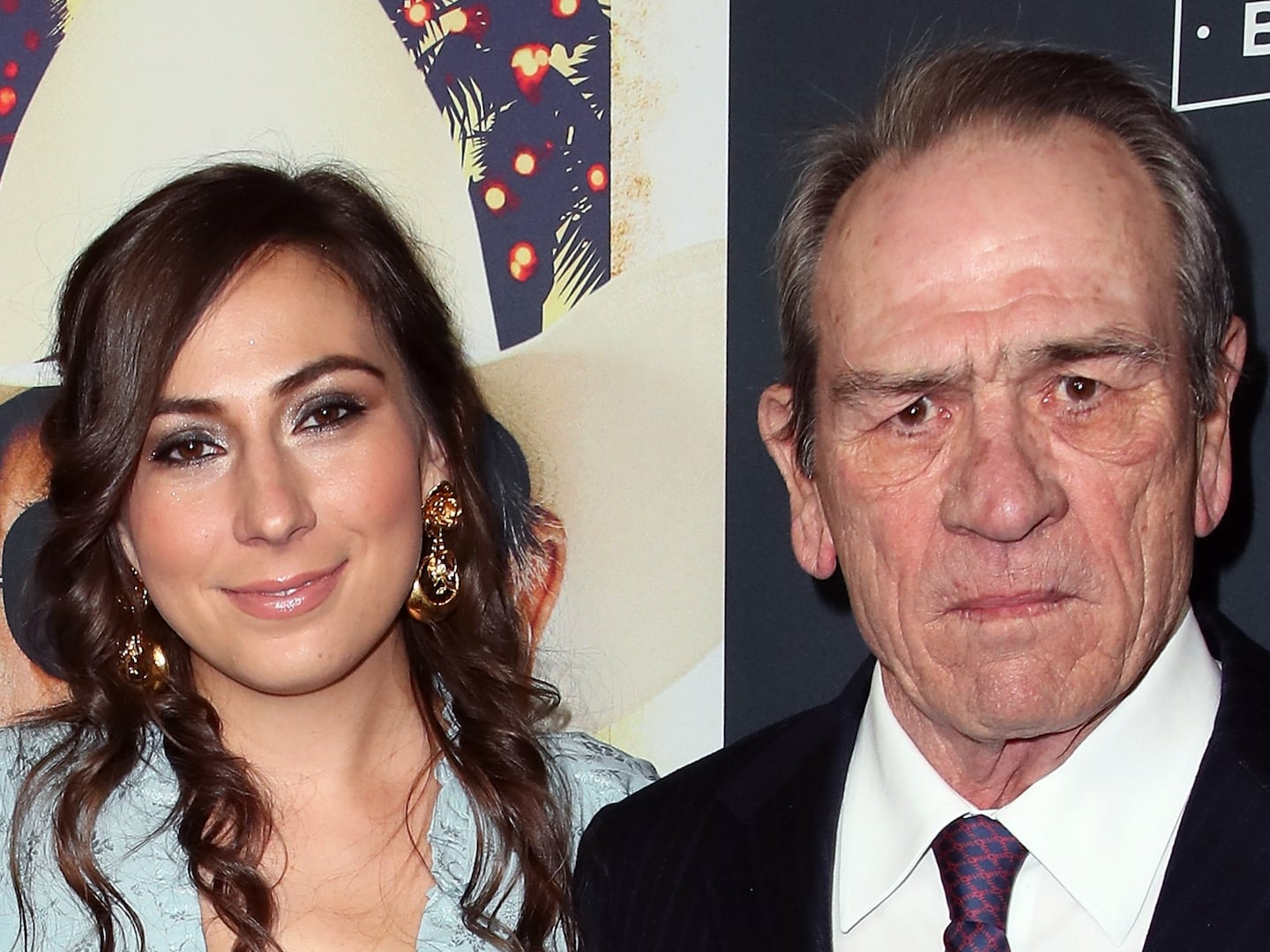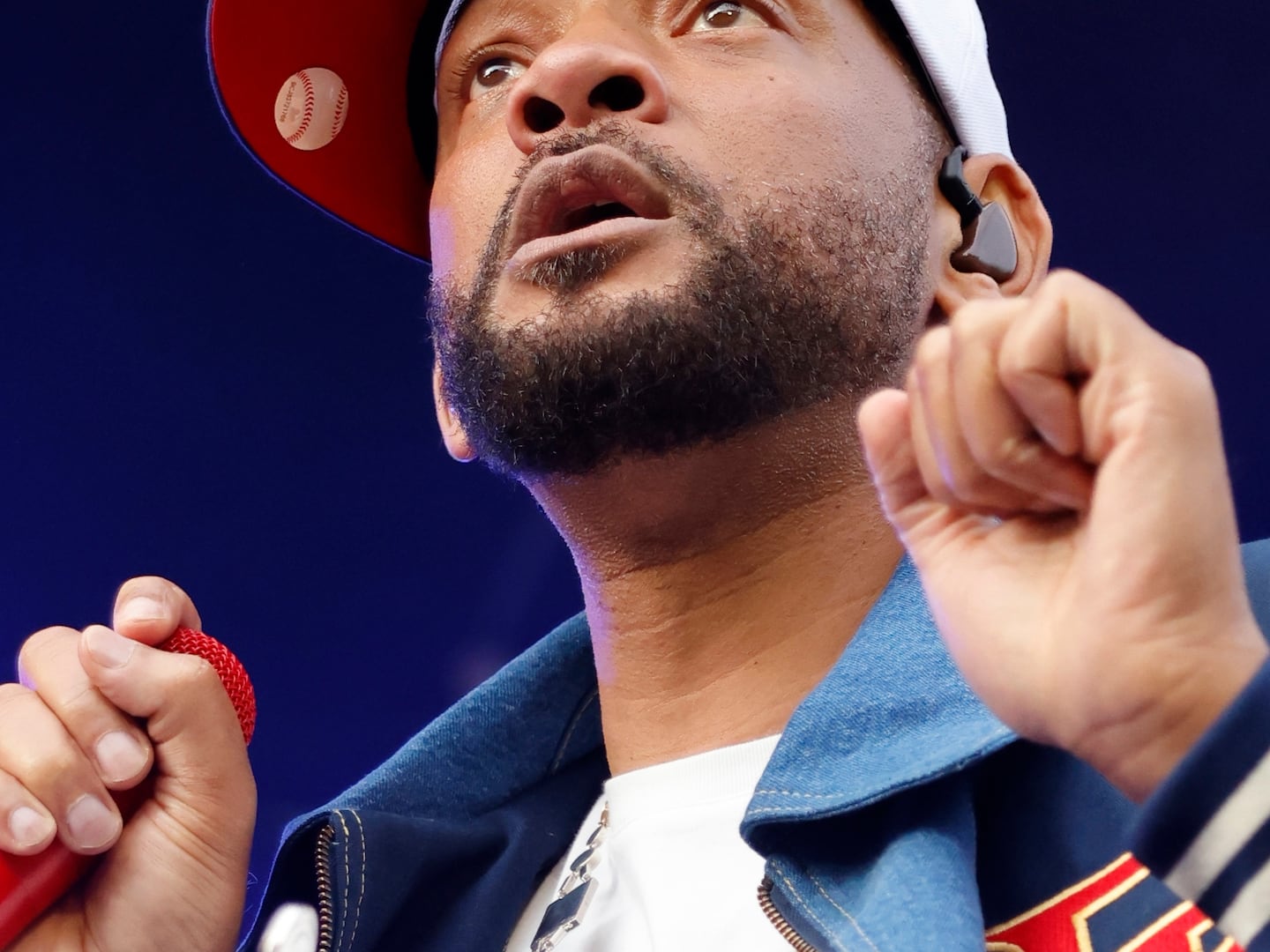There’s a lot riding on Squid Game: The Challenge. Netflix’s latest reality behemoth follows in the footsteps of Squid Game, one of the streamer’s biggest shows of all time, by bringing the drama series’ competition to life—456 contestants will enter the games with the hopes of winning a life-changing $4.56 million, the largest prize in North American game show history.
The series, was filmed in a mammoth studio in London in January and premieres Nov. 22, has already faced a litany of controversies. Fans of the original show have criticized Netflix for seemingly misunderstanding the entire point of Squid Game, which was that humans shouldn’t have to sacrifice themselves and their morality to earn enough money to live. But Tim Harcourt, an executive producer on Squid Game: The Challenge, says that message was commentary in the drama series alone, and that the reality show is different.
“You could criticize a Star Wars ride as ignoring the fact that Star Wars is an allegory about an uprising over an evil empire. That is one aspect of Star Wars,” Harcourt tells The Daily Beast’s Obsessed over Zoom. “But that doesn't negate the possibility of deriving further [stories] from it.”

More backlash for Squid Game: The Challenge came after a February Rolling Stone exposé included testimonies from players who referred to the show as the “cruelest, meanest” competition ever and accused it of being “rigged.” The execs behind the series denied these claims. Stephen Lambert, another executive producer on the series, says that remaining impartial is actually a hallmark of the reality show.
“The key thing is that this was a game where Netflix was giving away the largest [reality show] prize ever,” says Lambert. “It had to be incredibly fair. They actually really had to play the games, and they had to play them once. There was no retaking any bits of the game. If we didn't get it, we didn't get it—which meant we had a lot of cameras.”
Below, EPs Harcourt, Lambert, and John Hay tease the surprising new contests to come in Squid Game: The Challenge, as well as what they were looking for in those “lucky” 456 contestants—in case you want to apply for Season 2—and why the show is still worth watching amidst its handful of controversies.
This interview has been edited and condensed for clarity.
When I started Squid Game: The Challenge, I kept wondering, “Isn’t everyone at an advantage, knowing what game comes next and how to play them, thanks to Squid Game?” But they’re tricky in the show! How did you find ways to make The Challenge unique?
John Hay: The challenge, in a way, is how to deliver the right mixture of familiarity and surprise. Surprise is obviously one of the keynotes of the drama, the endless rug pulls. And yet, people are coming to this wanting Squid Game. One of our colleagues [said] that it was a bit like seeing your favorite band. If they don't play the greatest hits, you're going to be upset. If all they play is the greatest hits, you're going to be upset. You’ve got to get the balance right between the two.
Tim Harcourt: The things that we brought to Squid Game that were new were the pre-games, what we called the “tests of character.” For the pre-games, what we needed to do was to wrongfoot the contestants so they didn't realize what game they were about to go into. We knew that everyone would have watched the series. We knew that everyone would be looking for, “Oh, this is the moment where they're trying to separate us into tug of war and to Dalgona.” [The pre-games] had to drive alliances or force people into their alliances or even to break their alliances. The other thing we wanted them to do was to be revealing of character in a way that we felt that the games couldn't be. In the games, there's a degree of luck. There's a little bit of skill, but they're not massively revealing of character in the way that some games can be.
Can you say more on what you mean by “revealing of character”?
Stephen Lambert: As a starting point, we didn't have a script. If you watch the drama [series], the script’s doing quite a lot of work. It knows who the hero is and it's following the hero, but the script is breaking the characters into different groups. It's making those groups reflect the personalities of the characters in those groups and the tension between them. Because we didn't have a script, we had to find other ways of revealing characters that would bring out moral ambiguity and the opportunity for betrayal, all the kinds of things that the script was doing [in the original show].
A lot of the Squid Game challenges are brought out of childhood contests. When you were creating new games and laying out the blueprints for The Challenge, did you draw upon youth as an inspiration?
Hay: Once [Squid Game] had become a global phenomenon, we wanted our version to be a global show, a global opportunity. We did go back into our own childhoods when we were brainstorming new games and everything. But then we had a second layer of checking that these were games that resonated around the world. Obviously, you don't want to present a game that every Brit knows, but no one else does. There was a mixture of instinct and checking behind it.
What were you looking for when you cast those lucky 456 people?
Harcourt: We're used to casting reality shows with 15 to 20 characters, and that's normally a huge, humongous undertaking. In the back of your mind, you’re thinking, “Are they going to win? Are they the right mix?” All of those principles applied to this, but it’s completely supersized. In a smaller cast, we’re looking for a mix of people—and that's no different here. We wanted a broad spectrum of people, age-wise, background, predominantly American, as you can probably tell from the cast. That was something that the network was very keen on. There were little pockets of cast from around the world.
Aside from that, there were basic levels of fitness, suitability to being exposed to the rough and tumble of the games and the world, and being [gone for] 17 days as well, if you win. You’re isolated and living in this immersive world in East London. [There were also] boring things like being available at that time of year for that amount of time.
Lambert: We were breaking all the rules, because the absolute conventional wisdom is you can't do a reality show with more than 20 people. Netflix said to us, “No, no, we want to do it like the drama, we want 456.” We were like, “You must be mad.” The problem with 456 is, again, the difference between a scripted show and an unscripted show. In the scripted show, they can concentrate on the characters that they have written in the script. We had no idea who to follow because the people that we thought, “They're a particularly good character; let's concentrate our energies on following them,” they very often got eliminated very quickly.

So once you whittled the cast down to 456, how did you figure out who would be a main character and who would be peripheral?
Lambert: That was the real problem. How are you going to deal with the fact that you might find that character you’re interested in, but they then suddenly disappear? We've got to pass the baton on to somebody else. Partly, it was to do with the quality of the interviews that we did. There were two kinds of interviews. There were the interviews that were done with the guys wearing their tracksuits, and they were talking about what had happened in the show. But there were the other kinds of interviews where they were in the clothes that they'd come in with to play the game. And they were talking not about the game, they were talking about their lives. And [some] were amazingly revealing in those interviews. It meant that we were able to introduce characters.
There have been several controversies swirling around Squid Game: The Challenge. Some folks think it misses the political point of Squid Game, while others just don’t believe it can top the original. What would you say to these skeptical potential views to convince them it’s still worth watching?
Hay: That’s one dimension of the drama [series]. It’s not the only thing the drama’s about. The aspect of it that made it appeal to all of us is that it’s an incredible mechanism for looking at human nature under pressure. That’s universal, isn’t it? That sits at the heart of a lot of great drama and a lot of great unscripted [shows]. Also, we flipped ours. … Our version is driven by opportunity, rather than being driven by need. Millions of people watched the drama, a lot of them thinking, like a lot of us did, “What would I do if I were in that situation?”
This show isn’t like Survivor, where contestants are starved. But the conditions they stayed under also weren’t great, as players have said in interviews. We see them complain about their hunger, and contestants fight over a burger in one scene. How did you decide what their living situation would look like?
Hay: I wouldn't even say it was quite calculated. We were being faithful to the drama [series]. It did a lot of that thinking for us. In the drama, everyone is in the dorm and gets basic rations. So we matched the dorm and basic rations. That felt like it was true to the spirit of the Squid Game world.
Did you use any of the original props from Squid Game?
Harcourt: We didn't use any of the original props. We had to make our own tracksuits, and we had a difficult time getting the color right. There were all these debates about, “Oh, is that the green?” Eventually we said, “Just send us your tracksuits from the drama. We want to recreate them.” Director Hwang [Dong-hyuk] and his team were really kind—they gave us [all the color dimensions].
Hay: Also, we had various challenges that they didn't. For example, the doll, the recreation of that was an enormous technical feat. It was done in the biggest 3D printing facility in the UK. Our doll’s head had to turn sufficiently faster so that it was fair. If it was a gradual turn, then the people on one side would have had an advantage. It had to be a very swift turn. But then if it was too swift, the head just came off. The Dalgona biscuits, which we all thought were going to be one of the easiest things to do, took 19 goes to get the recipe right. They can’t go soft when you expose them to the air. You’ve got to be mindful of everyone's allergens.

"Squid Game: The Challenge. Episode 102 of Squid Game: The Challenge. Cr. Courtesy of Netflix © 2023"
NetflixEveryone wants to know about the cast, but I’m curious about the guards. Were those producers or actors?
Harcourt: They were extras. We hired them for the duration to be our guards. We realized very quickly that we needed them to move and act in unison, not just to look visually great, but also to help create menace. We had a choreographer in with them to work really hard to make sure they were all acting and moving as one.
Is there anything else diehard Squid Game fans should know before they watch?
Harcourt: Our mantra for the whole show has been this line: “How you play is who you are.” Our hope is that that comes through. We wanted to make it an exciting show. But also, our attraction to it in the first place was a way of revealing character under pressure. If we’ve managed to do that, then we’re happy.

